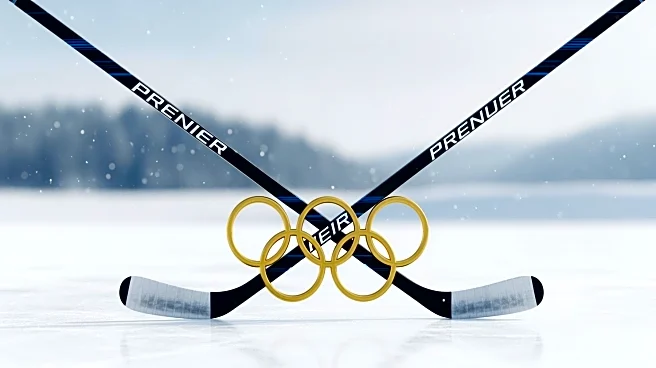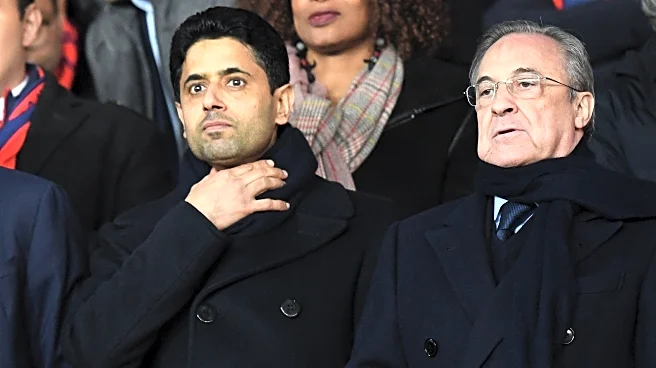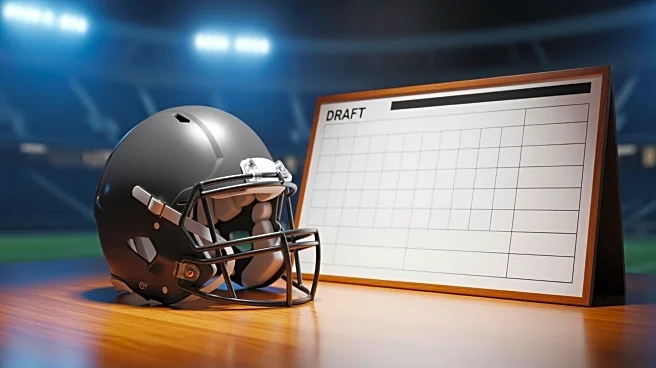What's Happening?
USA Hockey is in the process of evaluating players for the 2026 Winter Olympics, marking the return of NHL participation in the Games for the first time since 2014. The federation has invited 44 players to its orientation camp, including those who participated
in the 4 Nations Face-Off and the 2025 World Championships. The first six selections for Team USA include notable players such as Jack Eichel, Auston Matthews, and Brady Tkachuk. The roster is expected to be finalized by January, with the team aiming to improve upon past performances, including two silver medals won during previous NHL participations.
Why It's Important?
The return of NHL players to the Olympics is significant for USA Hockey, as it enhances the competitiveness and visibility of the sport on an international stage. The inclusion of top-tier players like Eichel and Matthews could bolster Team USA's chances of securing a gold medal, a feat not achieved since 1980. This development is crucial for the U.S. sports industry, potentially increasing viewership and sponsorship opportunities. It also impacts the players' careers, offering them a platform to showcase their skills globally and possibly influence their market value.
What's Next?
USA Hockey will continue to monitor player performances and injuries as they finalize the roster. Key players like Brady Tkachuk and Matthew Tkachuk are expected to return from injuries before the Olympics, which could influence final selections. The federation will also consider the inclusion of experienced players like Patrick Kane, who may return from injury soon. The final roster announcement is anticipated in January, setting the stage for strategic preparations and training camps leading up to the Games.
Beyond the Headlines
The return of NHL players to the Olympics could reignite interest in international hockey competitions, potentially leading to increased youth participation in the sport across the U.S. It also raises questions about the balance between professional commitments and national representation, as players navigate their roles in both the NHL and Olympic teams. This development may influence future negotiations between the NHL and international hockey federations regarding player participation in global events.

















